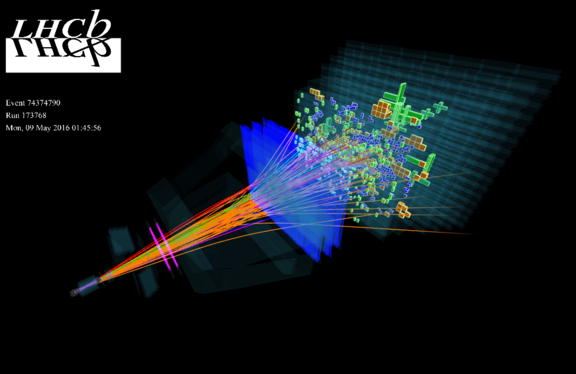The LHCb experiment
LHCb is one of the four large experiments at CERN's Large Hadron Collider (LHC), the world's highest energy particle accelerator. The experiment was designed to look for deviations from the Standard Model in precision measurements of CP-violation and rare decays of b-mesons, but since then has significantly extended its physics scope. Today it is not only the leading flavour physics experiment, but also very active in particle spectroscopy, electroweak and strong interaction physics. The experiment takes part in the LHC heavy-ion physics program and is the only LHC experiment that can study fixed-target interactions. The LHCb detector has a unique kinematic coverage, complementary to that of the other LHC experiments, which makes it particularly suited for unique measurements that are at the same time relevant for the particle physics and cosmic-ray physics communities. The group at MPIK is focusing its research in this area, studying soft QCD processes and heavy ion interactions at the highest currently available energies.
